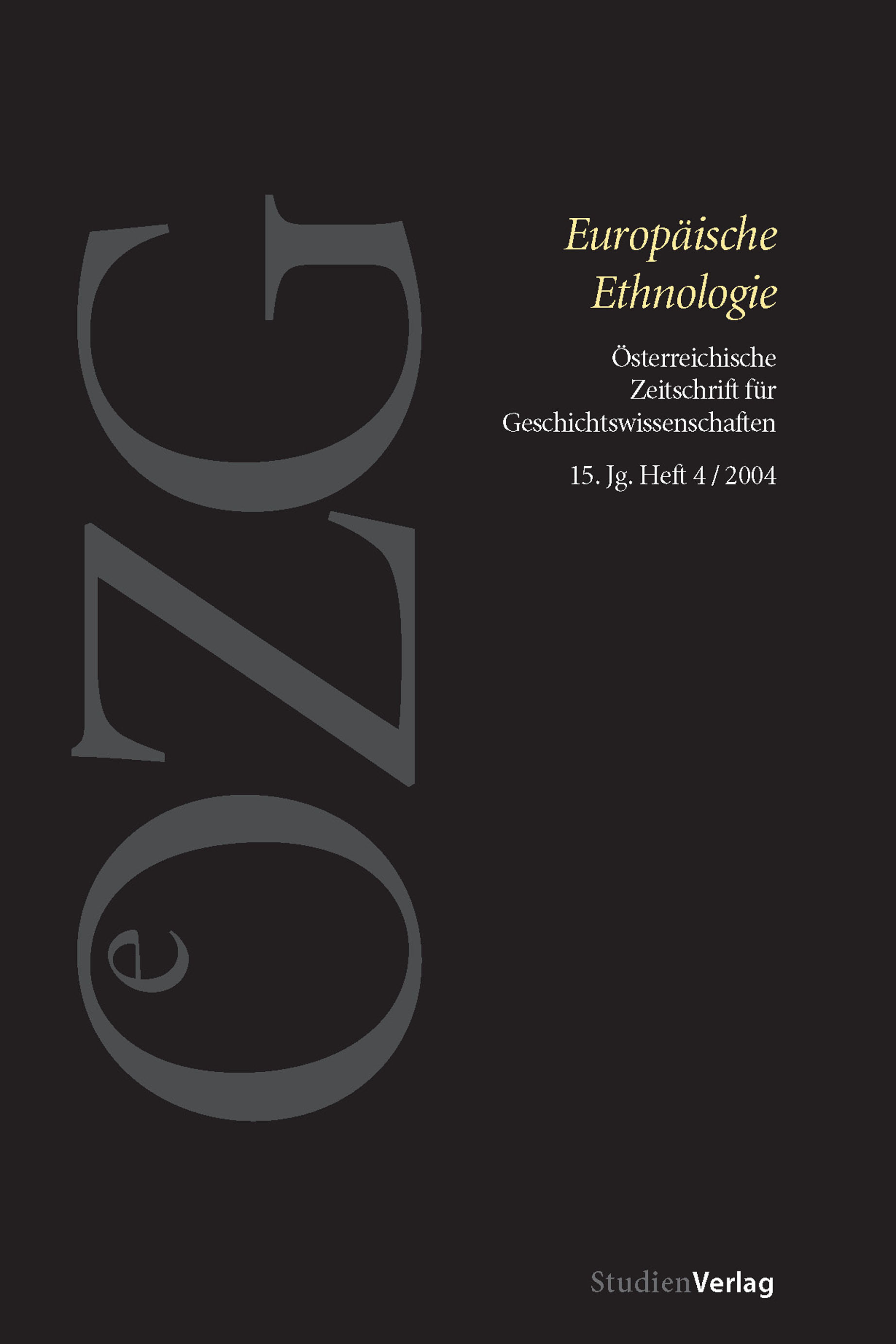The New Europe: Changes in a Cultural Concept. Some Ethnological Perspectives
DOI:
https://doi.org/10.25365/oezg-2004-15-4-6Abstract
Over the last decades, two disciplines that study culture have moved toward Europe, or have Europeanized themselves, though they come from different directions and work with distinct and historically shaped disciplinary paradigms. One of these is Volkskunde, a field previously nationally oriented, that since the Second World War has begun to internationalize itself, and from which European Ethnology has coalesced. The other is Social and Cultural Anthropology, which in accordance with its fieldwork methods and traditions, began to do research in the European peripheries once the colonial era ended. With this as background, current research approaches to Europe are discussed here, that is, the tendencies to see Europe not just as a field site in which to do research, but rather as a horizon in which a cultural and historical analysis of European modernity can be conducted. Examples can be found in the cultural geography of the continent, in the sense of the construction of «East« and «West,« and in the discussions of the notion of «multiple modernities.« The analysis, in short, is of the contemporaneity and dynamics of the European everyday since 1989.


